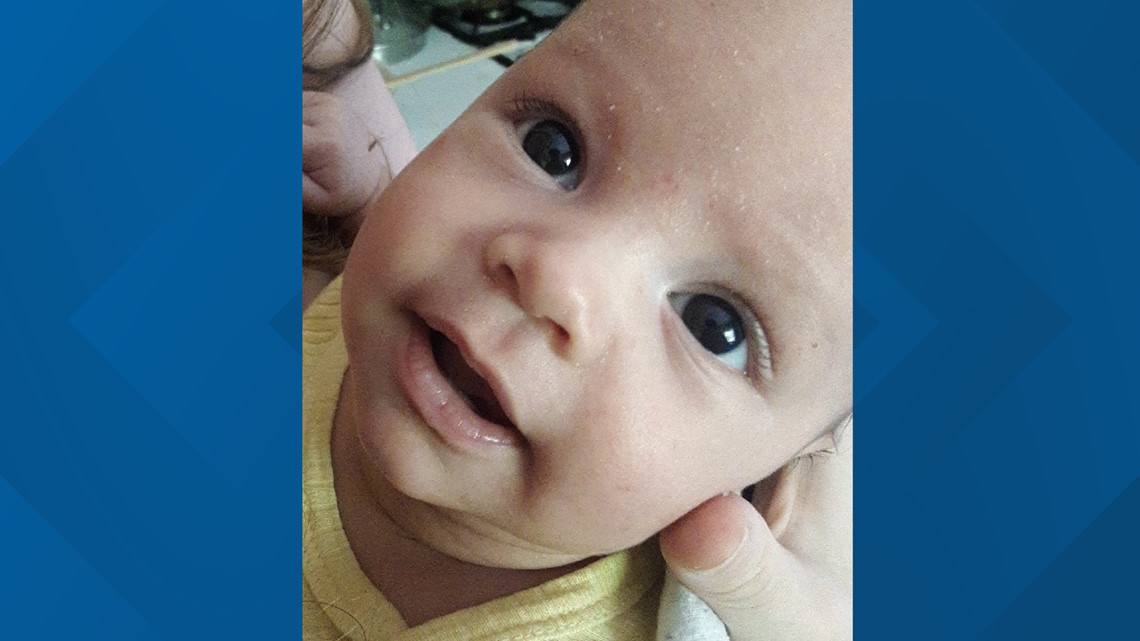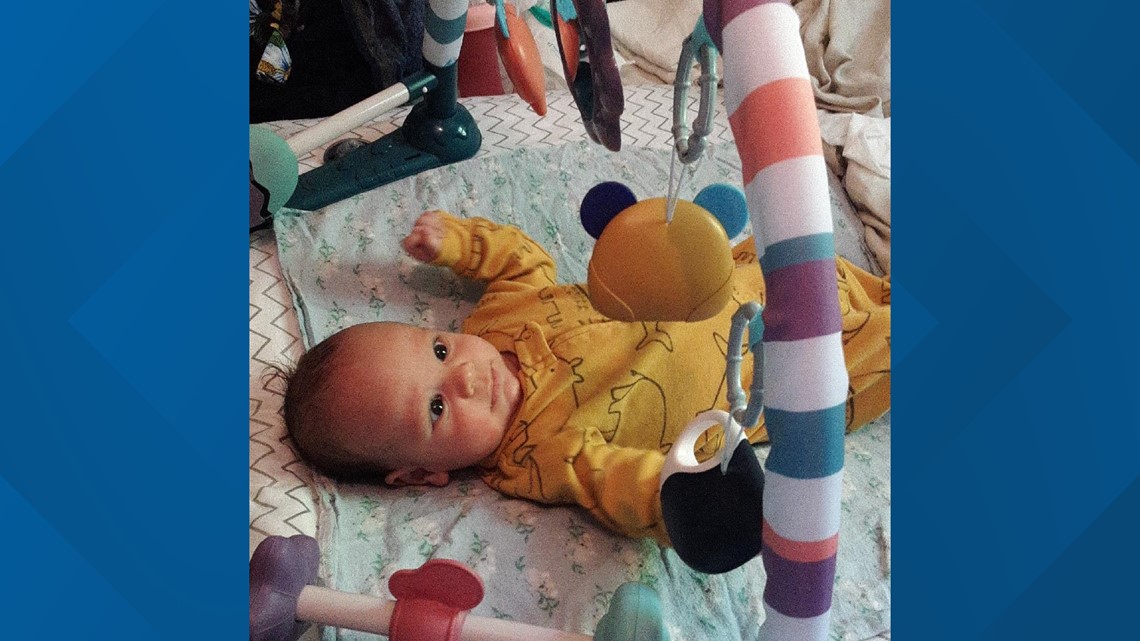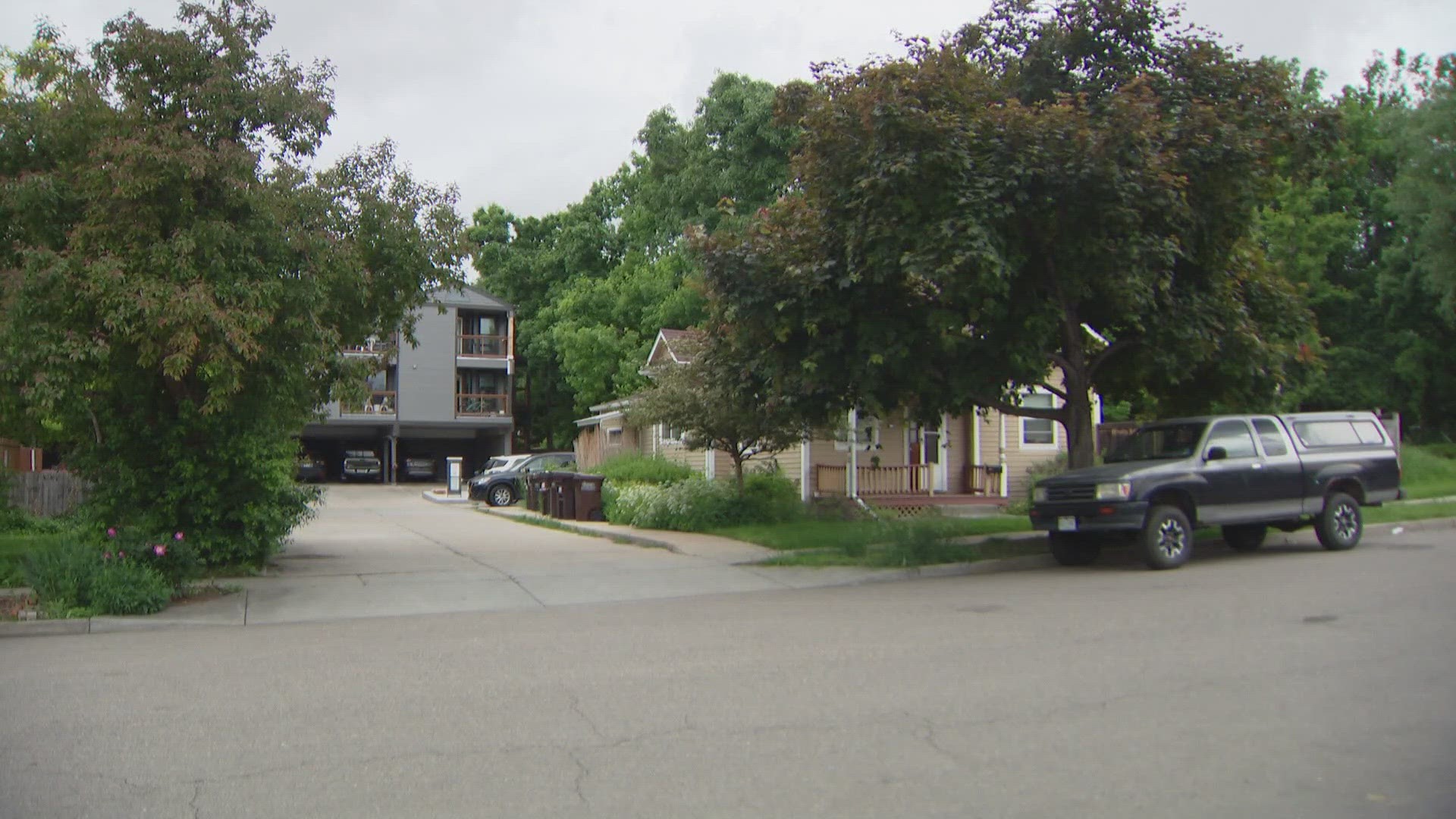BOULDER, Colo. — Editor's note: The story below includes details that readers might find disturbing.
A woman accused last week of killing her 2-month-old infant told investigators she'd had trouble sleeping for three weeks and it had "changed her ability to function," according to an arrest affidavit from the Boulder Police Department.
Around 4:30 p.m. Saturday, officers responded to a home in north Boulder for a welfare check on a woman who was possibly having a mental health crisis, police said.
The infant's father said he saw Anna Englund take their 2-month-old and drive away. Officers issued an attempt-to-locate alert for Englund to nearby law enforcement agencies.


The man, who identified the baby as Miles Basellio, told police he was concerned for the child's wellbeing due to Englund's postpartum mental health.
Englund's car was spotted around 10:20 p.m. headed toward Boulder Community Hospital, police said. Officers contacted Englund in the hospital parking lot and rushed the child into the emergency department, police said.
The child was pronounced dead at 10:48 p.m., according to police.
According to the affidavit, when contacted at the hospital, Englund said, "I killed my child." She said she hadn't been able to enter a deep sleep for roughly three weeks and "did not believe she would survive the sleep problem."
She went on to say that she did not "want him [her son] to suffer in life like I have."
Englund said that while the boy's father was in the bathroom she "became anxious" because "she didn't want to be a murderer but didn't want him to suffer," the affidavit says.
She took the child and drove off. She said she strangled the child in the vehicle around noon and then intended to take her own life. When contacted later at the hospital, she had a small laceration to her neck, which she described as a self-inflicted wound.


Englund said the baby's dad had previously locked her in a room away from him and the baby while they slept because he was worried she would do something to them, according to the affidavit.
She said she'd been hospitalized twice because of suicidal thoughts and had appointments to see a therapist but ultimately did not go due to the sleep deprivation, the affidavit says.
According to the document, she reported she was prescribed medication during one of her hospital visits but said that it made her have more suicidal thoughts so she stopped taking it.
Basellio's dad told 9NEWS Englund stayed at Boulder Community Health for a few days both times, and then doctors released her.
Boulder Community Health said they couldn't disclose any information about Englund's visits, citing privacy laws including HIPAA. A spokesperson wouldn't share the hospital's standard practice for treating postpartum psychosis.
"We understand that the situation involving Anna Englund is now in the hands of the judicial system," said Celanie Pinnell, Director of Marketing and Public Relations for BCH. "While we understand there is public interest in this story, we will not be providing any additional comment and will cooperate with local authorities if requested."
Englund later expressed regret about causing pain to the father of the baby and acknowledged that what she did was wrong, the affidavit says.
She faces charges of first-degree murder, first-degree murder - victim under 12 and child abuse resulting in death, court records show.
She's next due in court on Thursday morning.
Postpartum psychosis
Angela Narayan is a licensed psychologist and associate professor at the University of Denver whose expertise is in maternal mental health.
She said postpartum psychosis can take the form of hallucinations.
"Like they are seeing things or hearing things that aren't there, including a voice that is telling them to hurt themselves or the baby," Narayan said. "Usually, it is a voice that is frightening to them that they do not want to have. But it can often feel very real and feel very strong and feel very upsetting."
Narayan doesn't know what doctors in Boulder knew about Englund, so she can't really comment on the case. Overall, she thinks there needs to be a quicker way of identifying the condition so women and their families can get the help they need.
"I think a lot more needs to be understood about postpartum psychosis so practitioners, doctors, and medical and mental health professionals can identify it," she said. "Research is lagging on this topic."
Postpartum Support International (PSI) supports and provides resources for pregnant and postpartum moms, dads, and families dealing with perinatal or postpartum mood and anxiety disorder. According to PSI, postpartum psychosis happens in one or two out of every 1,000 deliveries.
Roughly 4% of women who have postpartum psychosis commit infanticide, and 5% die by suicide, according to PSI executive director Wendy Davis.
"A woman going through psychosis, which is a temporary and treatable condition, sometimes looks really functional," Davis said. "And in another hour she’s completely psychotic."
> To tell us more about this case, email kelly.reinke@9news.com.
SUICIDE & MENTAL HEALTH RESOURCES
The National Suicide Prevention Lifeline provides free and confidential support for those in crisis 24/7 simply by dialing 988 or 1-800-273-8255.
Pregnant and new moms can call this 24/7, free, and confidential hotline at 1-833-852-6262
There are four ways to get confidential and immediate help: by phone at 1-844-493-8255, over text message (text the word “TALK” to 38255), via an online chat service, or at walk-in centers throughout metro Denver, northern, the southeast region and the western slope. Many of these services are available 24/7.
Trained counselors are available to help with relationship problems, depression, bullying, stress, suicidal thoughts, substance abuse, family crisis and more.
SUGGESTED VIDEOS: Investigations & Crime

